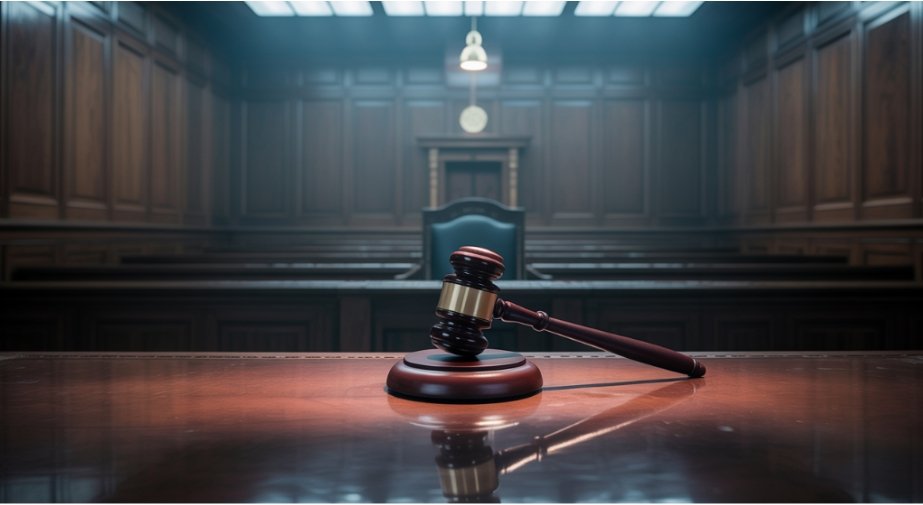Being arrested and charged with criminal offences in Blacktown is a serious and often overwhelming experience. Whether you’re facing a criminal law matter for the first time or have previously encountered the legal system, understanding your rights and responsibilities is essential.
This comprehensive guide is designed to help you navigate what happens after an arrest in Blacktown and to explain why engaging a skilled criminal lawyer is one of the most important steps you can take to protect your future.
Step 1: Stay Calm and Understand Your Rights
Upon arrest, it’s important to stay calm and cooperative without giving away unnecessary information. Under Australian law, you have specific rights that police must respect, including:
- The right to remain silent (except for giving your name, address, and date of birth).
- The right to contact a lawyer.
- The right to a fair and prompt hearing.
- The right to an interpreter if needed.
As noted by the Australian Human Right Commission, these rights are fundamental to due process.
Key Advice: Don’t answer questions (other than your identification) without first speaking to a lawyer. Even casual comments may be recorded and used in court.
Step 2: Dealing with a Police Interview
If you’re facing a police interview, it’s critical to proceed with caution. You may be asked to participate in a recorded interview at a station. While it might seem like cooperating fully will help, it’s not always in your best interest to speak without advice.
You should:
- Immediately request legal representation.
- Politely decline to answer questions until you’ve spoken to a criminal lawyer.
- Ask for a copy of your recorded interview (you’re entitled to it).
Step 3: Being Charged – What Does It Mean?
After your arrest, the police may:
- Release you on bail with or without conditions.
- Give you a court attendance notice or summons.
- Hold you in custody until you can be brought before a magistrate.
This is the start of your criminal law matter, and every decision made at this point can impact your future. It is vital to speak to a lawyer immediately to ensure your rights are protected and that you understand your obligations and options.
Step 4: Bail Application and Considerations
If bail is refused at the police station, you will appear in the Magistrates’ Court for a bail hearing. Bail is not automatic, and it’s your legal team’s job to convince the court why you should be released.
A criminal lawyer will argue:
- You’re not a risk to the community.
- You won’t interfere with witnesses or evidence.
- You’re likely to appear for future court dates.
Note: In some serious criminal law matters (like armed robbery or drug trafficking), the burden is on the accused to justify why bail should be granted.
Step 5: Finding the Right Criminal Lawyer
Having the Best Legal Representation can significantly influence the outcome of your case. A strong legal advocate will:
- Help you navigate the court process.
- Advise you on your plea.
- Gather evidence and prepare a defence.
- Negotiate with prosecutors.
- Represent you at trial or during sentencing.
When choosing a lawyer in Blacktown, look for someone with proven experience in handling criminal offences.
Step 6: Understanding the Court Process
Most criminal law matters begin in the Magistrates’ Court. The nature of the charge—summary or indictable—determines how the case progresses.
Types of Offences:
- Summary offences (e.g., theft, traffic matters): Heard in Magistrates’ Court only.
- Indictable offences (e.g., serious assault, sexual offences, drug charges): May be transferred to a higher court like the District or Supreme Court.
Court Stages:
- Mention Hearing – First appearance, administrative in nature.
- Committal Hearing – For indictable offences; tests if there’s enough evidence to proceed to trial.
- Plea or Trial – You enter a plea. If not guilty, a trial will be scheduled. If guilty, sentencing follows.
Pro Tip: The sooner a lawyer is involved, the better they can influence key points in your defence strategy.
Step 7: Sentencing – What Can Happen?
If found guilty or you plead guilty, the court will sentence you based on:
- The seriousness of the offence.
- Whether you have prior convictions.
- Personal circumstances (employment, remorse, mental health).
- Any mitigating or aggravating factors.
Sentencing Options Include:
- Fines
- Good behaviour bonds
- Community correction orders (CCOs)
- Suspended or actual imprisonment
Judges rely on case law and sentencing guidelines to ensure outcomes are consistent across similar cases.
Step 8: Appeals and Reviews
If you disagree with the court’s decision, you may be eligible to lodge an appeal within a limited timeframe—usually 28 days. Appeals can be made on several grounds:
- Error in the law.
- Severity of sentence.
- Miscarriage of justice.
A criminal lawyer will assess the grounds and advise you on the likelihood of success and risks of appealing (e.g., the possibility of a harsher sentence).
Final Words: Don’t Navigate a Criminal Law Matter Alone
Facing charges is not just about going to court—it’s about protecting your future. Every criminal law matter is different, and every case deserves a thoughtful, strategic approach. Seeking early legal advice gives you the best chance to present a strong case, understand your options, and avoid irreversible mistakes.
With experienced guidance from a reputable criminal lawyer, you can make informed decisions, protect your rights, and work toward the best possible outcome.

